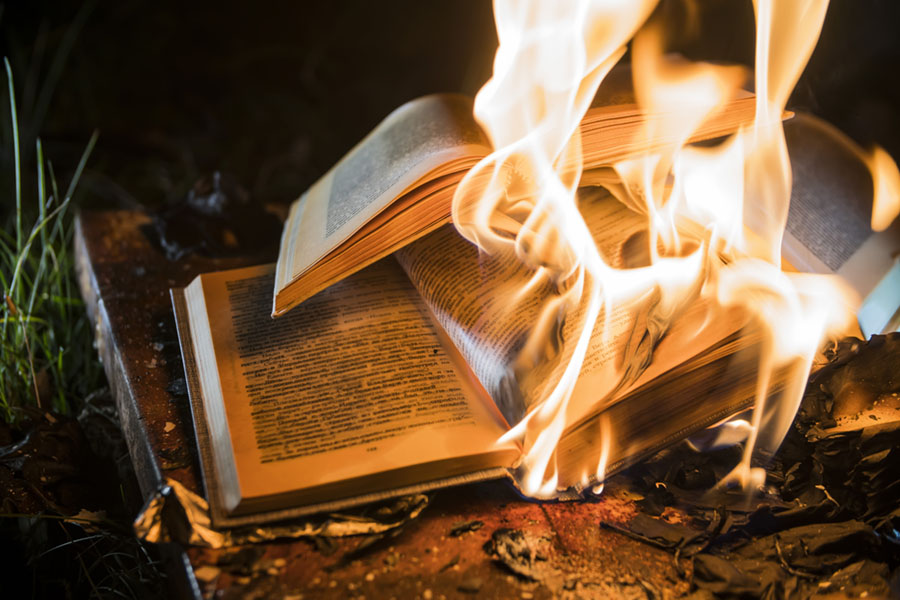
Censorship and Book Burning Go Hand-in-Hand
Modern Censorship and Book Burning Carries on Long Tradition of Thought Suppression; Information Equals Power and Freedom.
Cesorship and book burning have been bed mates throughout history. Almost as soon as there were books, there were those who realized that books were full of dangerous ideas that needed to be stopped or destroyed.
From Ancient Rome to the Chinese Court, ceremonial book burnings provided a way for the ruling class to limit the availability of new ideas and competing thoughts.
Idea suppression rarely stopped with the book burnings it often moved on to more serious forms of censorship. After burning books from previous dynasties in China, the Qin Emperor Qin Shi Huang went on to bury alive the scholars who had studied those books, snuffing out all hope of saving the historical works shovelful by terrible shovelful.
In Europe, heretical authors were burned at the stake, with their books sometimes used as part of the fodder for the fire. These and other activities provided the basis for the quote that has come to define the view on censorship and book burning
”Where they have burned books, they will end by burning human beings”.
– Heinrich Heine
His words now appear on a monument memorializing book burning in Germany, as the Nazi’s held several large book burnings over their years in power. However, the Nazis are not the last to engage in book burning in the modern era.
The tradition of book burning is as ancient as books, and Americans are only fooling themselves if they think that a little modernity has ended this tradition.
Its Okay if it’s a Statement
What Should be Tolerated?
Now that censorship and book burning are being co-opted as statement art, what should Americans tolerate? Is it okay to burn a stack of books because they are unwanted, regardless of content?
Is it okay to burn a stack of books in protest? Can women’s groups burn porn as an awareness tactic? Where’s the line? Even more importantly, who decides what that line is and where it gets drawn?
Censorship and book burning have historically been subjective acts, and it is hard to imagine that an objective standard would ever emerge.
By asserting that some books are worthless or deserve burning, is American society starting the walk to the place where some people are worthless or deserve burning?
Zero Tolerance as Self-Preservation
The answer to what should be tolerated when is comes to censorship and book burning is that it shouldn’t be tolerated. People burning books in the name of recycling, decency or awareness of a cause are still, at the end of the day, PEOPLE BURNING BOOKS.
It has been said that people will get used to anything, but do Americans really want to get used to a culture where book burning is acceptable?Activists and performance artists may call a zero tolerance stance hard-nosed or old fashioned, but permissiveness doesn’t help anyone.
Americans are truly acting in their own best interests when they refuse to go along with book burning. Self-preservation, in this case, begins with book preservation.

 My First Amazing Ayahuasca Experience
My First Amazing Ayahuasca Experience  Pine Needle Tea
Pine Needle Tea  The REAL Controllers of Humanity: The Papal Bloodlines
The REAL Controllers of Humanity: The Papal Bloodlines  Is it Global Warming or Cooling?
Is it Global Warming or Cooling?  Gun Rights and Obama Examined
Gun Rights and Obama Examined